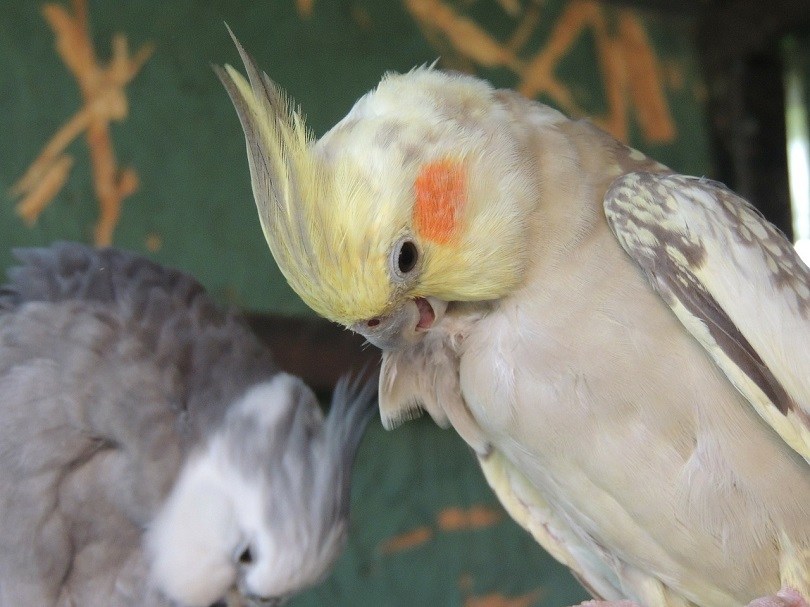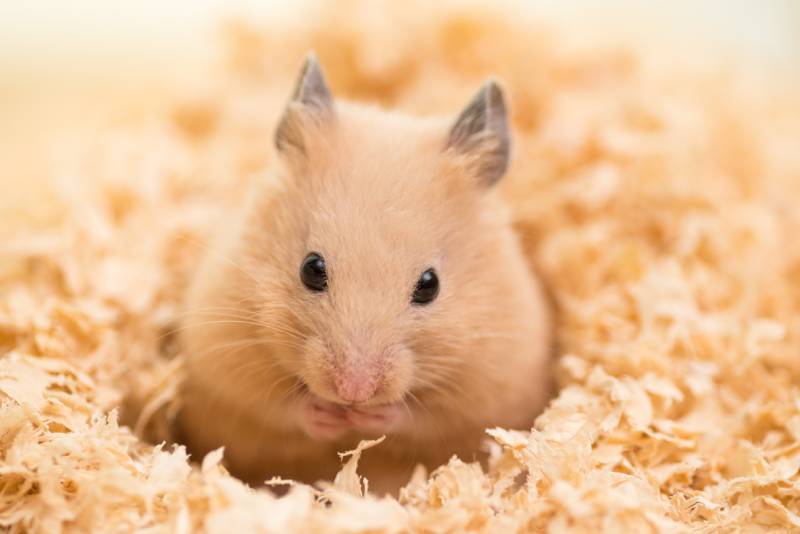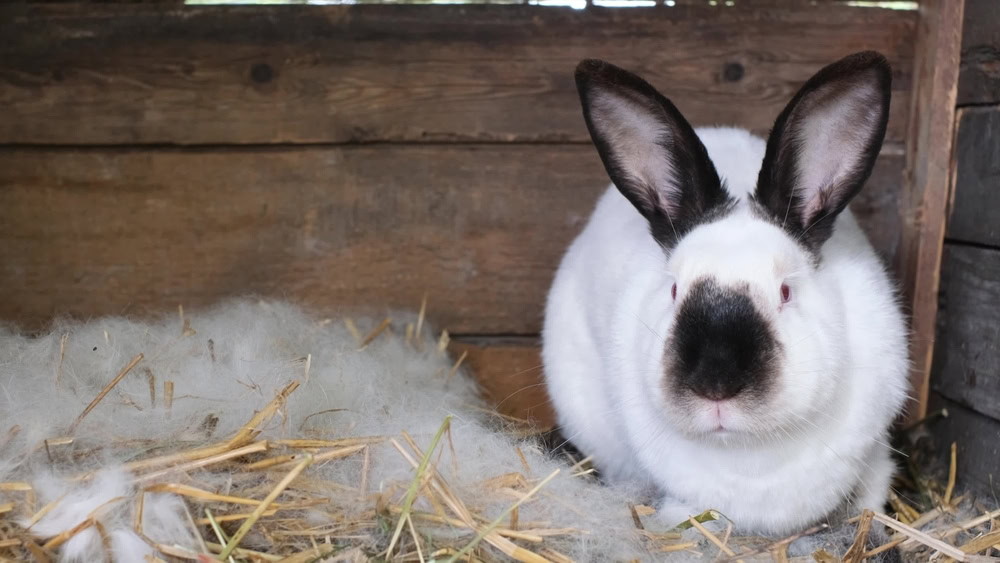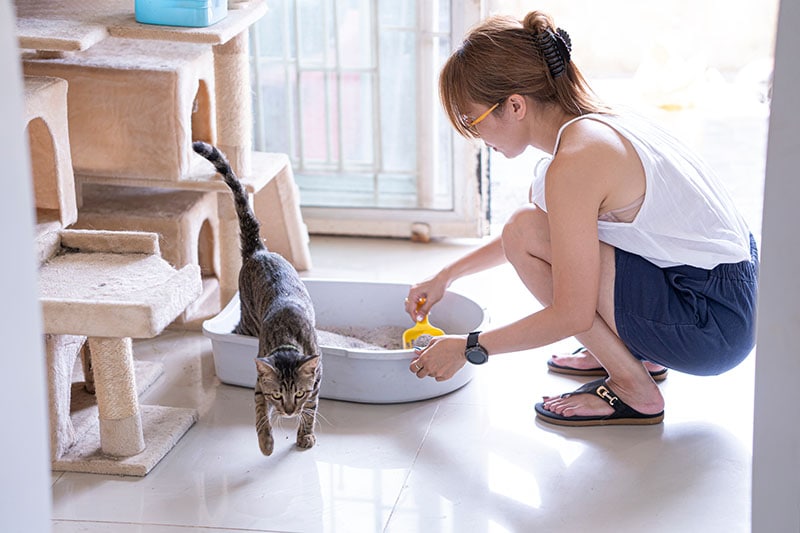Click to Skip Ahead
Cockatiels are popular pets, and it’s easy to see why. They are cute, friendly, and intelligent. If you have a pet cockatiel, you already know that their bright personality keeps you and your family entertained. But what if your cockatiel starts sneezing? Should you be worried?
The good news is that your bird is probably fine as long as the sneezing is dry (not producing mucus or moisture) and doesn’t occur continuously. However, there are situations where a sneezing cockatiel can be cause for concern. Read on to learn more about why your bird is sneezing, how to help, and when you should worry.
Common Causes of Cockatiel Sneezing
Cockatiel sneezing is fairly common. Their feathers produce a more powdery residue than many other birds. Some of the powder can get into their nose and make them sneeze. There are other causes of sneezing, however, that can result from their environment, diet, or care. These include:
- The air in the house is too dry.
- Your cleaning products are irritating to your bird.
- They are suffering from malnutrition.
- There’s dust in the air.
- There’s poor air circulation around the bird’s cage.
- Someone in the house smokes.
- They have a fungal or bacterial infection.
- They have a viral infection.
- They have a tumor.
- There’s a sinus blockage.
As you can see, some of these causes are more problematic than others. It is crucial to monitor your cockatiel’s sneezes for any changes in mucus production, intensity, or frequency.
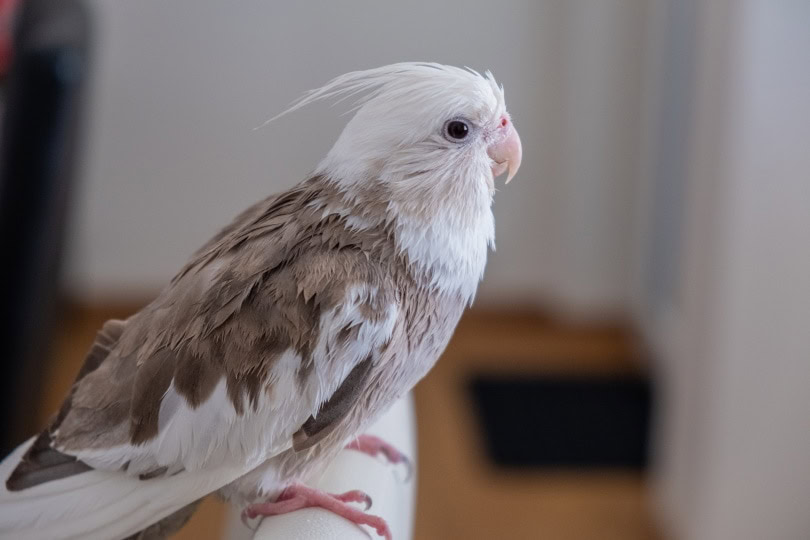
What to Do When Your Cockatiel Sneezes
You may not even realize that your cockatiel is sneezing if you aren’t paying close attention. They are small birds and their sneezes are not very loud. However, an attentive pet parent should be able to tell if their bird is acting differently.
If you notice a dry sneeze from your cockatiel, you should evaluate the environment. While it may simply be a sneeze from their feather powder, an environmental issue might also be part of the problem.
For example, using aerosol cleaning products in your home can cause irritation or allergies in your cockatiel. The same can be true if you use harsh cleaning products to clean out the birdcage. You should only use gentle cleansers, like vinegar, on the cage to prevent irritation of your bird’s respiratory system.
Indoor smoking, dry air, and too much dust are also frequent culprits. You should ensure the air around your bird is as clean as possible. You can use an air purifier in the room the bird is kept in to determine if any of these environmental contaminants are problems.
You can also help ensure your bird is healthy by feeding them a well-balanced diet. Many bird owners only give their pets seeds, which do not have enough of the vitamins and minerals that birds need, including vitamin A. Offering a balanced diet of bird pellets, seeds, fruits, and vegetables will protect your cockatiel from respiratory distress caused by malnutrition.

When to Worry About Sneezing
While an occasional dry sneeze is nothing to worry about, there are several situations when you should be concerned about a cockatiel’s sneezing. If your bird is exhibiting any of the following behaviors or signs, you should contact your veterinarian:
- Wet Sneezing — If your cockatiel is sneezing and has any discharge from their nose, you should first examine it for obstructions, such as a loose seed or other particles. It is recommended that you look with a flashlight to see more clearly. If there isn’t anything blocking their nasal passages, the discharge could be a sign of infection.
- Frequent Sneezing — Frequent sneezing, even if you think it is just caused by dust, should also be checked out by your veterinarian. Often, continuous sneezing is the first sign of more severe illnesses in birds.
- Red Nostrils or Stained Feathers — Red nostrils are typically a sign of infection in cockatiels and should be visible. The same applies to stained or discolored feathers around the beak due to mucus leakage or sneezing. Either of these is a cause for concern and should be treated immediately.
- Lethargy and Weight Loss — If your cockatiel isn’t as active or has suddenly lost weight, accompanied by sneezing, it can also be a sign of a more serious problem.
- Changes in Droppings — This could mean a change in color, consistency, or frequency. It might indicate that your bird has an infection or another illness.
Cockatiels are generally healthy birds, but when something goes wrong, you need a resource you can trust. We recommend The Ultimate Guide to Cockatiels, an excellent illustrated guide available on Amazon.
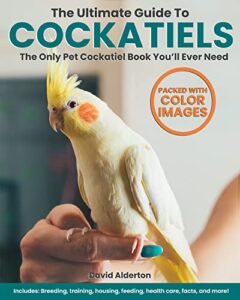
This detailed book can help you care for your cockatiel through injuries and illnesses, and it also offers helpful tips on keeping your bird happy and healthy. You’ll also find information on everything from color mutations to safe housing, feeding, and breeding.
Conclusion
An occasional dry sneeze from your cockatiel is nothing to worry about. However, if it is accompanied by other issues or becomes more frequent, you should have your veterinarian check them out. This will give you peace of mind and ensure your bird has a long, healthy life.
You may also be interested in:
- 33 Snakes Found in Texas (With Pictures)
- Why Is My Guinea Pig Sneezing? Our Vet Explains the Common Reasons & FAQ
Featured Image Credit by: Pixabay
